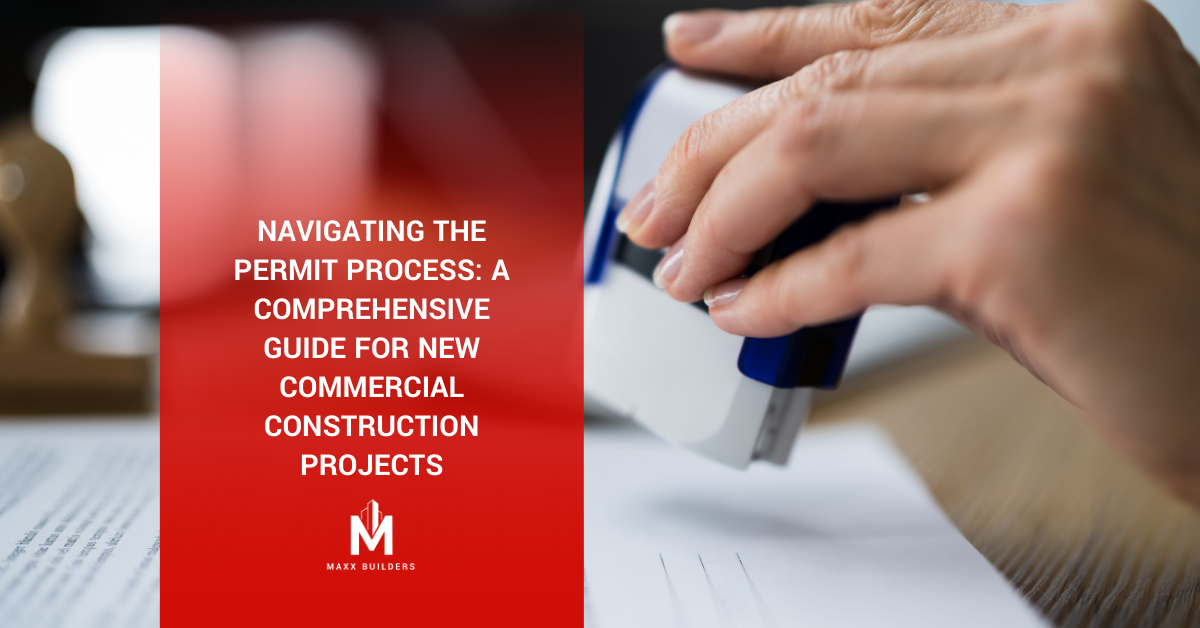Embarking on a new commercial construction project is an exciting endeavor that requires meticulous planning and a deep understanding of the regulatory landscape. One of the most critical steps in this process is navigating the complex world of building permits. This guide aims to demystify the permit process, providing you with the knowledge and tools needed to ensure your project complies with all local, state, and federal regulations.
Introduction
The permit process for new commercial construction projects is a pivotal step that ensures the safety, compliance, and success of your endeavor. Understanding this process is essential for any developer, builder, or investor looking to embark on a commercial construction project.
Understanding the Importance of Building Permits
Building permits are official approvals issued by local government agencies that allow you to proceed with a construction project. They ensure that your project plans comply with building codes, zoning laws, and other regulations, safeguarding the safety of the community and the integrity of your structure.
The Steps of the Permit Process
- Pre-Application Planning: Before applying for permits, thoroughly review your project plans with architects, engineers, and consultants to ensure compliance with all local codes and regulations.
- Submission of Documents: Submit detailed project plans, including architectural drawings, engineering plans, and environmental impact assessments, to the local building department.
- Review Process: The building department reviews your submission to ensure it meets all requirements. This stage may involve multiple departments, including zoning, fire, environmental, and health.
- Addressing Feedback: Be prepared to address any questions or requests for additional information from the reviewing departments.
- Permit Approval: Once your plans are approved, you’ll receive your permits, allowing you to begin construction. Note that permits may come with conditions that must be adhered to throughout the construction process.
Common Challenges and Solutions
Navigating the permit process can present several challenges, including lengthy review times, complex regulations, and the need for multiple permits. Streamlining your approach by ensuring complete and compliant application submissions, engaging with permit expeditors, and maintaining open communication with local authorities can mitigate these challenges.
Cost Considerations
The cost of building permits varies widely depending on the scope of your project and local fee structures. Budgeting for permit fees, as well as potential costs associated with delays or required plan modifications, is crucial.
The Role of Professionals
Hiring experienced professionals, such as architects, engineers, and permit expeditors, can significantly ease the permit process. These experts understand local regulations and can help ensure that your project plans meet all necessary requirements.
Staying Informed About Regulations
Staying up-to-date with changing building codes and zoning laws is essential for a smooth permit process. Regularly consult with local building departments and professional advisors to stay informed.
The Impact of Technology on the Permit Process
Advancements in digital submission and review platforms have streamlined the permit application process in many jurisdictions, reducing wait times and increasing efficiency.
Best Practices for a Successful Permit Process
- Start early: Engage with local authorities and professionals at the earliest stages of your project.
- Be thorough: Ensure all documentation is complete and accurate before submission.
- Stay proactive: Regularly follow up on your permit application status and be prepared to respond to any queries promptly.
Conclusion
Navigating the permit process is a critical step in the journey of commercial construction. By understanding the importance of permits, familiarizing yourself with the process, and engaging the right professionals, you can ensure that your project not only complies with all regulations but also proceeds as smoothly and efficiently as possible. Remember, a well-navigated permit process lays the foundation for a successful construction project, ultimately contributing to the safety, functionality, and sustainability of your new commercial space.




